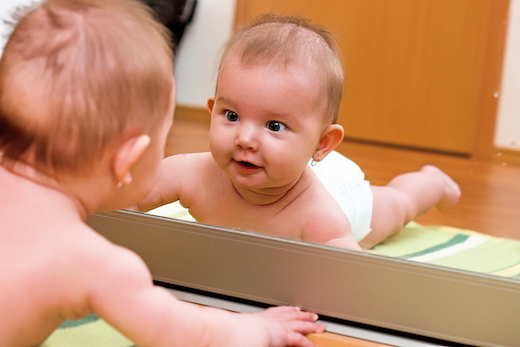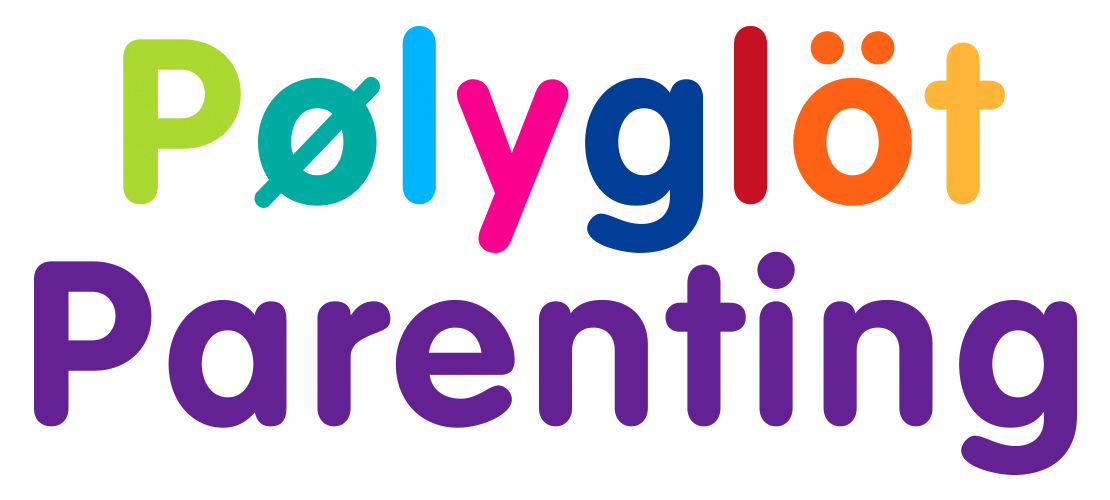New online workshop! Learn how to raise bilingual kids
For years, I’ve been leading in-person workshops for parents on how to raise bilingual children. I’m thrilled to announce that, by popular demand, the workshop How to Raise a Bilingual Child is now available for purchase online! This workshop contains tons of useful information for parents and caregivers of young children ages 0-4! In this workshop, we dispel common worries and bust some myths about raising bilingual children, learn the 4 keys to unlocking the bilingual magic in your household, help you set goals for what you hope to accomplish by raising bilingual children, and help you choose a model of bilingualism that’s right for your family. Plus, we’ll go over lots of tips to help…
7 must-know facts for parents wondering “When should I worry about my bilingual child’s speech?”
 A common question I get as a Bilingual Speech-Language Pathologist is: “I’m worried about my bilingual (or multilingual) child’s speech. What are the signs that I should get my child’s speech checked out by a professional?”
This is an excellent question! A great first step is to empower yourself with information.
The website of the American Speech-Language-Hearing Association (ASHA) is an accurate and professional source of information about speech issues. For example, this…
A common question I get as a Bilingual Speech-Language Pathologist is: “I’m worried about my bilingual (or multilingual) child’s speech. What are the signs that I should get my child’s speech checked out by a professional?”
This is an excellent question! A great first step is to empower yourself with information.
The website of the American Speech-Language-Hearing Association (ASHA) is an accurate and professional source of information about speech issues. For example, this…
You’ve been told to stop being bilingual – now what?
 Short on time? Here’s the bullet point summary of this blog post. Things to know if you're told to switch from two languages to one:
Most children, including most children with speech or language disorders, can handle two languages.
Modern research reveals many benefits to bilingualism, and debunks old negative myths about bilingualism.
Current best practices compel experts to only recommend switching to one language under specific individual circumstances.
When a family wants or needs two languages in…
Short on time? Here’s the bullet point summary of this blog post. Things to know if you're told to switch from two languages to one:
Most children, including most children with speech or language disorders, can handle two languages.
Modern research reveals many benefits to bilingualism, and debunks old negative myths about bilingualism.
Current best practices compel experts to only recommend switching to one language under specific individual circumstances.
When a family wants or needs two languages in…
Top tips for raising bilinguals (from adults who were raised bilingual!)
 Raising kids with a minority language at home is not always easy, and that’s especially true in countries such as the U.S., where society tends to view speaking one language as the norm. As a specialist in bilingual language development and as the mom of a bilingual child myself, I’m always on the lookout for tips to make raising bilingual kids easier!
In past blog posts, I’ve discussed bilingual parenting tips from the perspective of child development, and tips from other parents who are…
Raising kids with a minority language at home is not always easy, and that’s especially true in countries such as the U.S., where society tends to view speaking one language as the norm. As a specialist in bilingual language development and as the mom of a bilingual child myself, I’m always on the lookout for tips to make raising bilingual kids easier!
In past blog posts, I’ve discussed bilingual parenting tips from the perspective of child development, and tips from other parents who are…
6 Biggest Myths About Raising Bilingual Kids Debunked (Video)
Don't fall prey to these 6 common myths about bilingualism! In this video, I debunk common myths that you may have heard about being bilingual. In sum: #1: MYTH: Bilingualism causes speech disorders and delays. FACT: Bilingualism does not cause or worsen speech disorders or delays. #2: MYTH: A child's brain can't handle more than one language. FACT: The human brain can handle multiple languages. #3: MYTH: Kids mix languages because they're confused. FACT: Mixing languages is normal, not a sign of confusion. #4 MYTH: Kids soak up languages like a sponge. FACT: Children need significant long-term exposure to both languages to become fluently bilingual. #5 MYTH: There's a cut-off age when…
Buying the Best Bilingual Book
Reading with your children is a wonderful and fun way to build language skills, and holds countless other benefits as well. Many parents raising bilingual kids wonder what type of children’s books are best for learning the minority language. There are three broad categories of such children’s books: books written originally in the minority language, translations into the minority language, and bilingual books (sometimes called dual language books) written in two languages. Each type of book has its place, is useful in its own way, and would make a good addition to a child’s home library.
Why You Need a Bilingual Action Plan
One of the most common myths about bilingual kids is that they pick up languages very quickly and easily. The idea that children pick up languages “like a sponge” with small amounts of language input is one of those myths that has a grain of truth in it. Children are indeed better and faster at picking up languages than adults. Having said that, children require a lot of language input to become and stay fluently bilingual through adulthood. In an ideal world, becoming a person with native-like fluency in two languages would take about 50%/50% exposure from each language throughout childhood. In the real world, a good target for fluency is at least 30% of one of the languages. In terms of…
4 Must-Know Aspects of How Bilingual Kids Learn Language
The speech and language development paths of monolingual and bilingual children have more in common than not. Bilingual and monolingual children generally experience the same major speech and language milestones. These include starting to babble, saying their first words, starting to form sentences, and being able to tell a complete story. Still, there are a few unique aspects of language development for children growing up with more than one language. Not all bilingual children experience the language aspects discussed here, but the following four are common enough to keep an eye out for. It can be helpful for parents to know that these aspects can be a typical part of healthy bilingual…
4 Bilingual Tips to Skip
 Raising your kids bilingual in a country where speaking one language is the norm is not always a piece of cake. That’s why there’s nothing better than a good, effective bilingual parenting tip, trick, or hack to make raising a bilingual kid that much easier.
But not all tips and methods for raising bilingual kids are created equal! There are some well-intentioned tips floating around out there may be unhelpful or even counterproductive to the goal of raising kids who are…
Raising your kids bilingual in a country where speaking one language is the norm is not always a piece of cake. That’s why there’s nothing better than a good, effective bilingual parenting tip, trick, or hack to make raising a bilingual kid that much easier.
But not all tips and methods for raising bilingual kids are created equal! There are some well-intentioned tips floating around out there may be unhelpful or even counterproductive to the goal of raising kids who are…
4 Tips for Monolingual Parents of Bilingual Kids
As a Bilingual Parenting Consultant, I help families create language plans to meet their language goals. Many families I work with have one monolingual parent and one bilingual parent, and one of the most frequently asked questions I get is, “How can I, as someone who speaks only English, be supportive of my kid becoming bilingual? Is there anything I can do to help if I don’t speak the language myself?” The good news is, there is plenty that the English-only parent can do to be supportive. In fact, having the monolingual parent on board with the child growing up bilingual is super important for maintaining the minority language! Many language tips out there are directed towards what the…
A Simple Music Tip for Busy Parents
Kids need lots of exposure to a foreign language in order to gain and maintain fluency, and music is a super fun, easy, and effective way to add more language into your life! You can sing songs with your child, go to concerts, listen to albums, or put on a YouTube playlist of kid’s songs. Songs, poems, nursery rhymes, or really any things that rhyme are great to expose your kids to in their minority language. Rhymes make words memorable and sticky in your mind. Plus, clapping along with and singing along with nursery rhymes or songs is fun and motivating for kids. However, it’s not always easy to find time to serenade our kids with heritage language lullabies. For a quick and easy way to…
The Key to Reaping the Awesome Benefits of Bilingualism
Recent research has revealed that being bilingual has numerous amazing cognitive benefits. When bilinguals speak one language, they are suppressing the rules and elements of their other language. This takes mental flexibility; it's essentially mental exercise. This exercise keeps your mind sharp and limber, which seems to be one reason why bilinguals have proven advantages over monolinguals in terms of ability to multitask, focusing in on relevant information, and filtering out unnecessary information. All that mental exercise and agility works as a preventative factor against Alzheimer's, too. Other benefits of bilingualism include better metalinguistic awareness (which in turn strengthens…
Dispelling Confusion About “Bilingual Confusion”
 Monolingualism may be the norm in the U.S., but throughout most of the world, kids speak more than one language.[^1] In the past few decades, research has revealed more and more benefits of bilingualism. This has contributed to a resurgence of American parents interested in supporting their children in becoming bilingual, but parents understandably still have many questions. In my experience as a Bilingual Parenting Consultant and Speech-Language Pathologist, a very common concern from…
Monolingualism may be the norm in the U.S., but throughout most of the world, kids speak more than one language.[^1] In the past few decades, research has revealed more and more benefits of bilingualism. This has contributed to a resurgence of American parents interested in supporting their children in becoming bilingual, but parents understandably still have many questions. In my experience as a Bilingual Parenting Consultant and Speech-Language Pathologist, a very common concern from…
